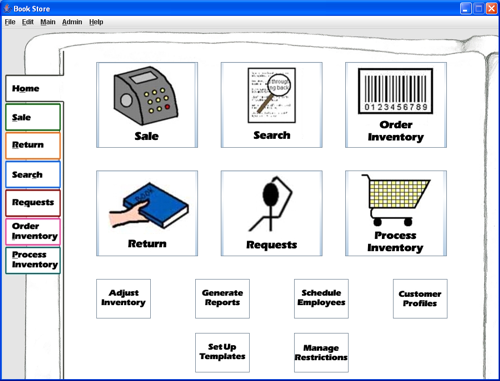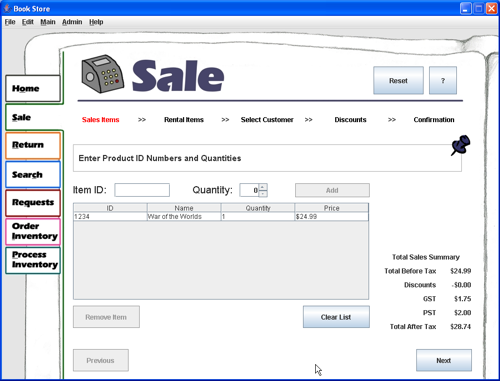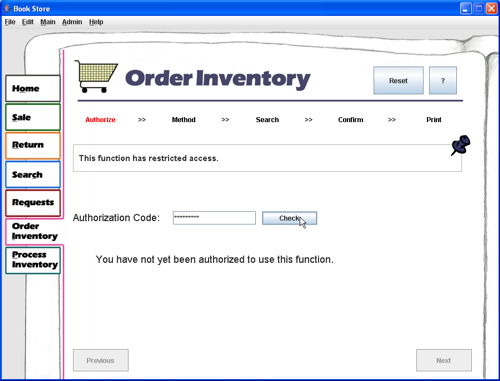You are here
Bookstore Management System
Context
Three incremental assignments for COMP 3008, User Interface Architecture, made up the semester's project. In groups of four, we went from choosing and learning about our user to producing a prototype of software our user wanted.
Our team worked with Singing Pebble Books as the user for the case study. We designed a bookstore management system to meet the needs of this relatively small, independently owned bookstore.
User and Task Analysis
The document produced as a result of our initial analysis constituted the first assignment. The document includes:
- identification of potential users
- assumptions about the users' characteristics
- detailed analysis of users, environments (physical, social and cultural), and tasks
- user/task matrix
The first assignment document is available in PDF format.
Examining Usage in More Detail, Rough Prototyping
The second assignment involved examining the usage of the software in greater detail. This iteration covered the following topics:
- Issues, goals, and objectives
- Objects and actions
- Use scenarios
- Use sequences
- Use flow diagram
- Use hierarchy
The second assignment document is available in PDF format. The prototype diagrams referenced are not included.
Refined Prototype, Presentation
The third and final assignment required us to implement and demonstrate a click through prototype of our software. Some screenshots from our system follow.
First, the main screen of the program is shown when first run. This page contains icons as short cuts to the main functions available through tabs or menu items.

Next, the first step of a sales transaction is shown. Here, items can be entered manually or scanned with a barcode reader if available. Note the breadcrumb trail at the top of the working area; each of the listed steps can be accessed out of order unless allowing so would not make logical sense.

Finally, this screen shot demonstrates how access to certain functions can be reserved for selected people, such as managers, only.





